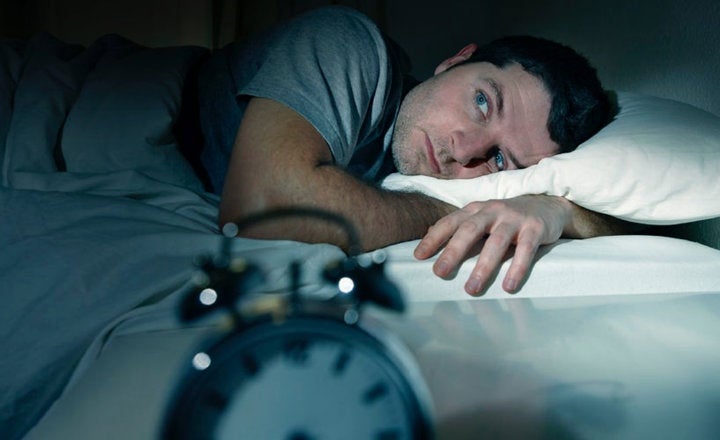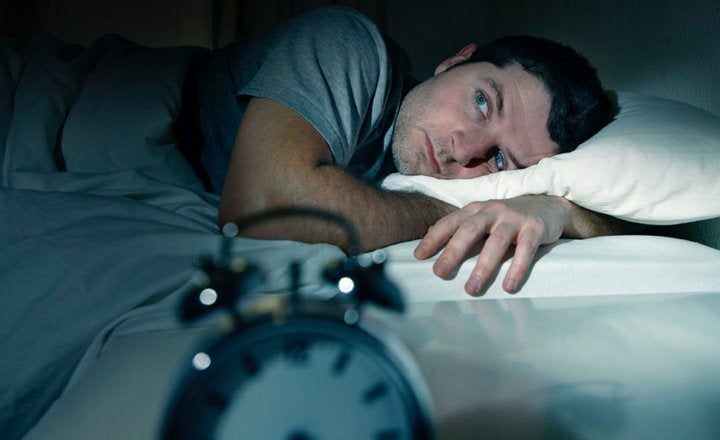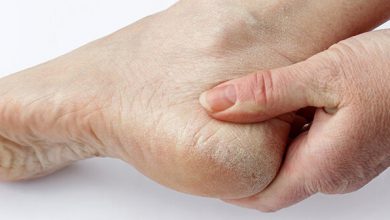Somniphobia Or Fear Of Sleeping

Somniphobia is an intense fear that manifests itself at bedtime. It is an unwarranted fear that something bad will happen during sleep. For example, dying from suffocation, being attacked by someone or something, or never waking up again.
These people try to rationalize their fears and know that most of them are unfounded. However, they experience apprehension and a diffuse sense of anxiety every time they go to sleep.
As a result, they cannot get adequate rest, and this ends up having an impact on their lives. After a few weeks or months, the situation can be desperate for the patient.
What are the causes of somniphobia?
Although in some cases the causes are unknown, the majority are based on one or more previous traumatic events, or in patients with recurrent presence of nightmares, night terrors or domestic violence.
Other possible causes are previous anxiety, as a disorder suffered by the patient and that, after a while, also manifests as somniphobia. In the same way, an initial insomnia can lead to somnophobia, because for the person it can be distressing to go to bed without being able to fall asleep, knowing all that it implies.
What are your symptoms?
Somniphobia is accompanied by excessive anxiety when it comes to going to sleep, even when thinking about the idea of going to bed early. Its most common symptoms are usually the following:
- Anticipatory anxiety
- Negative thoughts and ideas of death
- Feeling of alert or hypervigilance
- Apprehension or fear
- Precordial pain
- Palpitations
- Tremors and muscle spasms
- Excessive sweating
- Trouble breathing or feeling short of breath
- Need to urinate all the time
Consequences of somniphobia
Somniphobia has serious health consequences, especially if the problem persists in the long term. Many patients experience, in chronic or prolonged cases, insomnia and stress.
There is a physical, mental and intellectual deterioration due to the disorder, with irritability and even hallucinations. Chronicity leads to depression and the signs of a low mood. It is also not unusual for hypochondria to be associated, such as fear of a life-threatening illness.
The body becomes fresh when sleeping less, and during the day there is excessive fatigue, headaches and attention problems. Memory needs regular sleep to be alert, so it is another aspect that begins to fail in patients with somniphobia.
People with this problem perform less at work and academically, in addition to reducing their immune capacity. They are more prone to infectious diseases, gain weight, and slow down their metabolism.
Psychological treatment
Psychological treatment for somniphobia is based on brief behavioral or cognitive-behavioral counseling psychotherapy. These treatments can be combined with other sleep medicine and chronobiology techniques.
Therefore, to maximize the chances of success, multidisciplinary treatment with the psychologist and neurophysiologist is recommended. Added to this are other techniques that help alleviate the symptoms of somnophobia, such as clinical hypnosis, relaxation and meditation techniques, EMDR, and certain types of brief psychodynamic psychotherapy.
It must be borne in mind that the patient has to change his lifestyle, he must maintain adequate sleep hygiene, regain rest and correctly manage his time. Medical help in parallel with the treatment may be recommended, especially for the most severe cases of somniphobia.

Although complex, it can be treated
In conclusion, although somniphobia is a complex disorder that brings together phobia, anxiety, insomnia and other psychosomatic manifestations, there is a significant percentage of success in its treatment. Above all, reference must be made to multidisciplinary treatment.
In any case, overcoming somniphobia entails a change in the patient’s lifestyle that will result in an improvement in their quality of life and health. In addition, if the treatment is successful, it will improve performance in other functional areas of the individual, such as studies and work.









